Deep well water level monitoring: Application of 200 meters deep well in Nigeria
13 October, 2025
pokcensertech
Success Stories
Customer demand:
Nigerian customer needs to monitor the water level and temperature of a deep well with a depth of 200 meters and a well diameter of 150mm. The data must be accurate and reliable, and both local data reading and remote monitoring must be achieved to reduce the risk of manual intervention.
Solution core components:
1. PWP412-W submersible pressure level transmitter for deep well
- Synchronous measurement:water level (0-200 meters) and water temperature (-40℃ to +80℃)
- Output signal:dual independent 4-20mA (one for water level/temperature)
- Accuracy level:water level ±0.5%FS, temperature ±1%FS
- Special cable:200 meters steel reinforced PUR cable (tensile and wear-resistant)
- Well diameter adaptation:choices of probe diameter 27mm, 19mm and 16mm compatible with narrow well
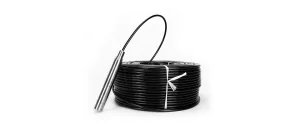
2. P5200 field display + Audible&visual alarm
- Real-time reading of water level and temperature data on site, with adubile&visual alarm
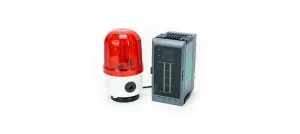
3. PW302 wireless module + IoT monitoring platform
- Transmit data to cloud platform via 4G/IoT
- Remotely view real-time data on web/mobile terminal
- Set water level/temperature alarm threshold
- Automatically generate historical data trend chart
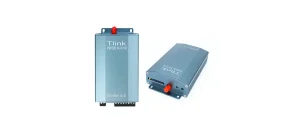
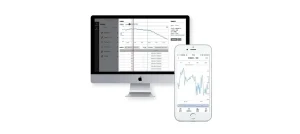
Solution advantage analysis:
| Challenge | Disadvantages of traditional solutions | This solution measures |
| 200m deep well monitoring | Large signal attenuation | 4-20mA signal anti-interference transmission |
| 150mm narrow well diameter | Difficult equipment installation | Compact sensor design (diameter <27mm) |
| Dual parameter precise monitoring | Multiple equipment conflicts | Single sensor integrated water level and temperature synchronous measurement |
| Remote data acquisition | Rely on manual downhole meter reading | Real-time wireless transmission on IoT platform |
Implementation results:
- Data accuracy
- water level sensor with 0.5% accuracy
- Temperature monitoring accuracy is ±1℃ (80℃ range)
- Operation and maintenance efficiency
- Cancel manual well inspections to reduce safety risks
- Instant response to abnormal water levels through platform alarms (such as SMS notifications)
- Decision support
- Historical data trend analysis to optimize water intake scheduling
- Reduce equipment idling losses caused by monitoring blind spots
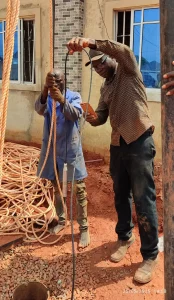
Previous Article
 English
English Spanish
Spanish
